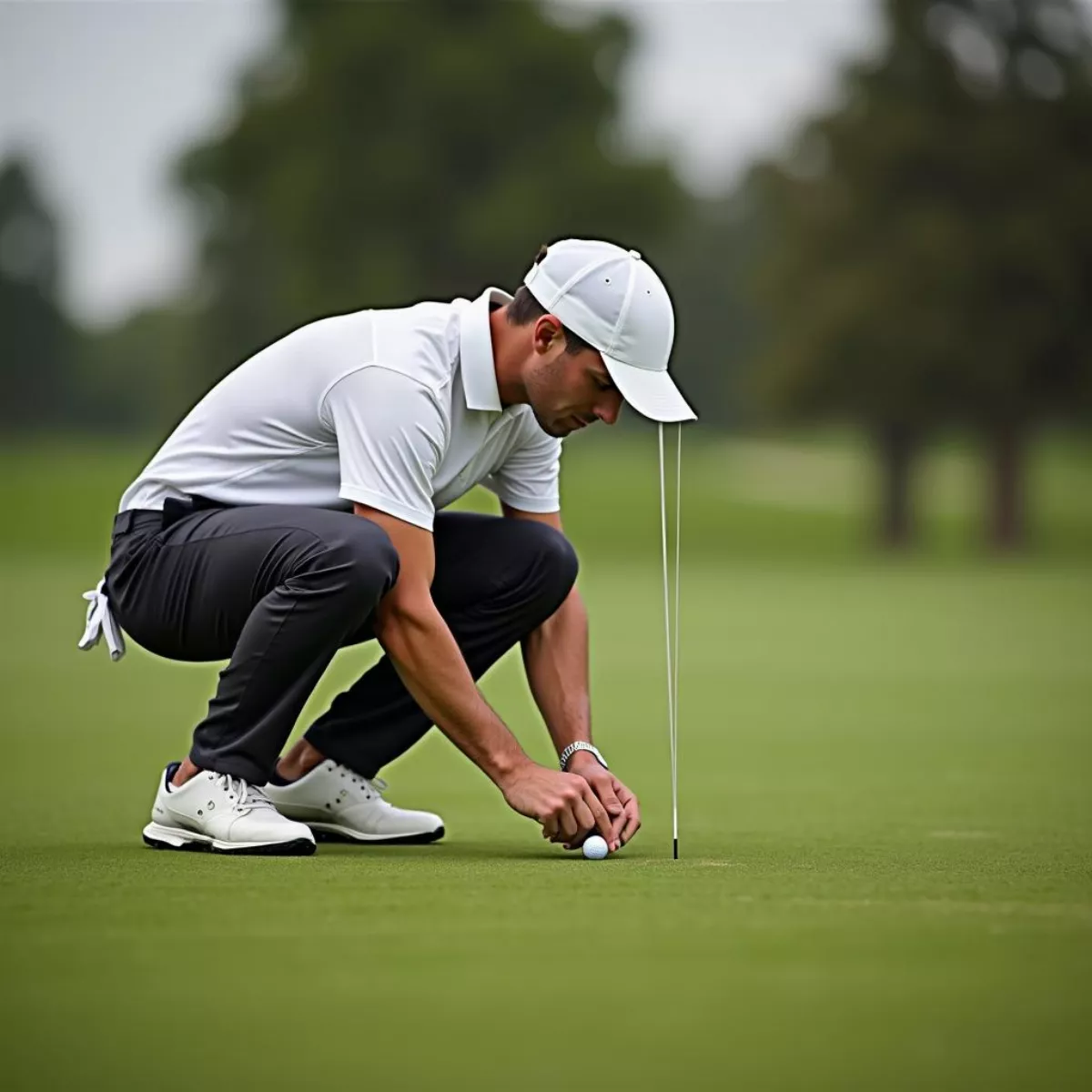Golf is a game steeped in tradition and complexity. Among the many terms and rules that govern this beloved sport, the term marker plays a critical role. In simple terms, a marker is a player who is responsible for official scorekeeping and other essential functions during a round of golf. This article will break down what a marker is, their responsibilities, and the impact they have on the overall game.
What is a Marker?
In golf, a marker can refer to two distinct concepts:
- The Physical Object: The small object used to mark the position of a golf ball on the green.
- The Person: A player who keeps track of scores for others or themselves during the round.
The Physical Marker
A physical marker is often a small, flat disc or coin used to indicate where a player’s ball rests on the putting green. When a player needs to lift their ball to clean it or if someone else is putting, they may use a marker to show the ball’s original position. Some common materials for markers include:
- Plastic discs
- Metal coins
- Custom markers with logos
Using a physical marker is crucial as it ensures fair play and maintains the flow of the game.
 Golf ball marker on green
Golf ball marker on green
The Personal Marker
The personal marker is often referred to when discussing the person who keeps score during a round of golf. Typically, in amateur play, one player will act as a marker for another, recording their scores and ensuring that all rules of the game are followed. This is especially important for competitions where accurate scoring can determine a winner.
Why is the Marker Important in Golf?
The role of the marker is vital in maintaining the integrity of the game. Whether marking the ball on the green or keeping score, the marker’s responsibility is to uphold fairness and transparency. Here are key functions they perform:
- Ensures accurate scoring: Keeping a precise total of all strokes taken.
- Maintains pace: Recording scores efficiently to keep the game moving.
- Acts as a witness: Verifying that rules are followed during play.
Understanding the importance of markers can enhance interest in both competitive play and casual rounds, making players more considerate of their fellow golfers.
 Golfers reviewing scorecard during a game
Golfers reviewing scorecard during a game
Responsibilities of a Marker
For Scorekeeping
When acting as a marker, a player’s primary responsibilities include:
- Recording scores accurately for each hole.
- Ensuring players sign their cards at the end of the round.
- Confirming the right strokes are counted according to the Rules of Golf.
For Marking the Ball
In the case of marking the ball, the responsibilities are:
- Placing the marker directly behind the ball (for easy replacement) when lifting it for any reason.
- Checking that the position of the marker does not interfere with other players’ putts.
Key Golf Rules Pertaining to Markers
Markers must follow specific rules outlined in the Rules of Golf. Here are a few key rules:
- Rule 14.1: When lifting the ball, always replace it on its original spot, which the marker should help identify.
- Rule 6.3: Any player may serve as a marker for another, provided they are not competing in the same event.
How to Use a Marker Effectively
Whether you are using a physical marker or acting as a personal marker, here are a few tips:
- Choose a Visible Marker: If marking a ball, choose something that contrasts with the grass.
- Be Consistent: Always position your marker the same way to make it easier to replace the ball.
- Communicate: If you are a marker, talk with the player you’re marking to clarify any scoring disputes.
- Know the Rules: Familiarize yourself with rules concerning marking and scorekeeping to handle any situation effectively.
Table of Best Practices for Markers
| Task | Best Practice |
|---|---|
| Selecting Marker | Use bright colors or distinctive designs |
| Marking Ball | Always mark behind the ball to maintain position |
| Scorekeeping | Use clear and legible writing |
| Communication | Confirm scores verbally with players |
| Rule Knowledge | Review Rules of Golf regularly |
Common Misconceptions about Markers
It’s common for new players to be confused about a few aspects related to golf markers. Here’s a quick debunking:
- Misconception 1: Markers are only for tournaments.
- Fact: Markers are crucial in casual play too, assisting in fair scoring.
- Misconception 2: Any object can be used as a marker.
- Fact: While many objects can be used, it’s best to select something designed for this purpose.
- Misconception 3: Markers can change scores.
- Fact: Markers simply record scores; the actual score is determined by the player.
 Golfer placing marker behind ball on green
Golfer placing marker behind ball on green
The Importance of Etiquette in Marking
Proper etiquette is crucial in all aspects of golf, including the use of markers. Here are some courteous practices:
- Respect Other Players: Ensure your actions do not distract or delay your fellow golfers.
- Be Considerate: If your ball is marked, be prompt in replacing it to minimize disruption.
- Be Honest: Always accurately report scores; integrity is key in golf.
Key Takeaways
- A marker can be both a physical object used on the green and a person who keeps track of scores during the game.
- Proper use of markers ensures a fair and enjoyable game.
- Familiarity with golf rules concerning markers enhances the playing experience.
- Good etiquette makes it pleasant for everyone on the course.
- Remember to keep accurate scores, communicate clearly, and practice etiquette!
Frequently Asked Questions (FAQs)
- What is the main purpose of a marker in golf?
The main purpose is to assist in accurate scorekeeping and marking a ball’s position on the green. - Can anyone be a marker?
Yes, any player can serve as a marker for another player, provided they are not competing against them. - What should I use to mark my ball?
You should use a small, visible object like a coin, marker, or designated disc. - What happens if I forget to mark my ball?
Failure to mark properly could result in penalties if your ball’s position isn’t accurately recorded. - Do I need to report every score during casual play?
While not strictly necessary, it is good etiquette to keep track of scores during casual rounds. - Can markers change a player’s score?
No, markers cannot change scores; they only record what’s been agreed upon by the players. - What if there is a disagreement about the score?
Communication is key; players should consult their marker to clarify discrepancies. - Why is marking so important in competitive play?
It ensures that every stroke is accounted for, maintaining the integrity of the game. - Do markers receive training?
While not mandatory, many clubs offer guidance on the roles and responsibilities of markers.
By understanding the concept of a marker in golf, players can enhance their experience while ensuring fairness and integrity throughout the game. So next time you tee off, remember the importance of the marker — whether you’re marking a ball or acting as one for your friends!

